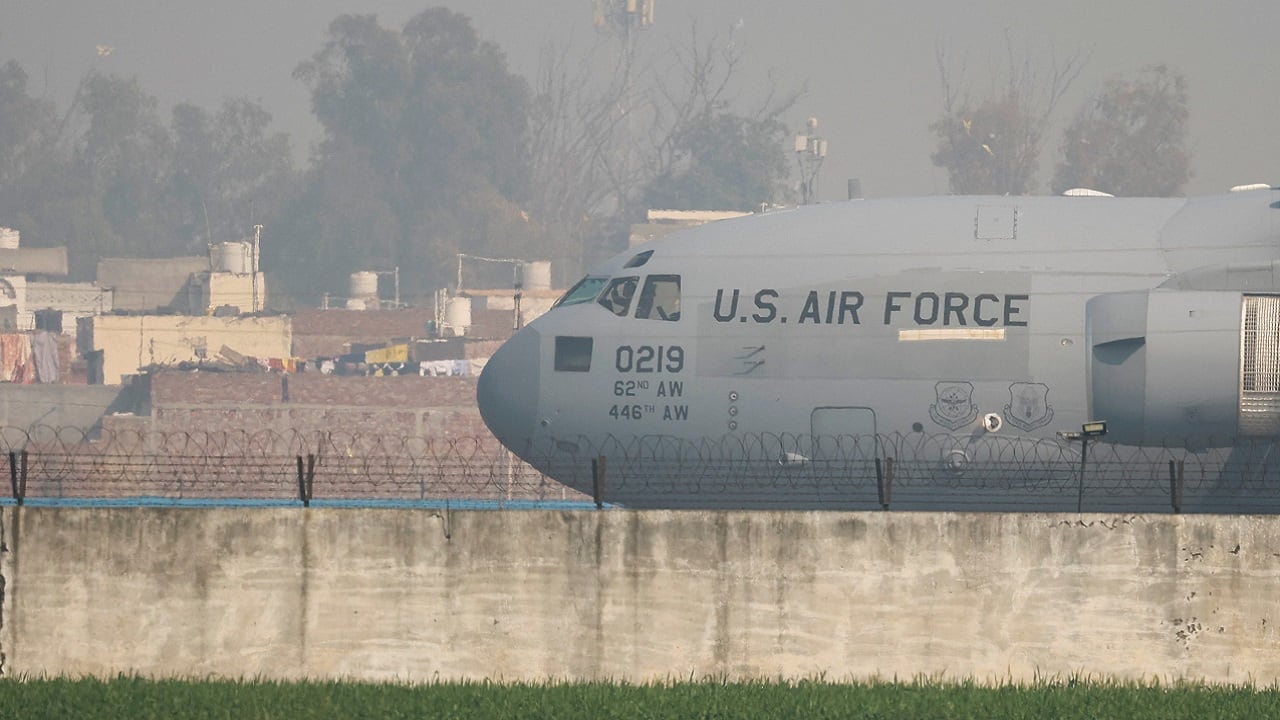 |
|
The recent deportation of 205 Indian nationals from the United States to Amritsar, India, highlights the complex and often fraught issue of immigration and the impact of political changes on the lives of individuals living abroad. The flight, arriving on February 5th, 2024, carried individuals who had been living illegally in the US, primarily from the states of Gujarat, Haryana, and Punjab. This event underscores the human cost of immigration policies and the challenges faced by those caught in the crosshairs of shifting political landscapes. The fact that a US military aircraft, a C-17, was used for the deportation emphasizes the scale and seriousness of the operation, suggesting a coordinated and significant effort by US authorities to address what they perceive as illegal immigration.
The demographic breakdown of the deportees reveals a significant concentration from Gujarat, Haryana, and Punjab, with approximately 33 individuals each from the first two states. This geographical concentration raises important questions about the factors that might have led individuals from these specific regions to seek opportunities in the United States, potentially including economic disparities, limited employment prospects, or other socio-economic factors within their home states. The inclusion of individuals from other states like Maharashtra, Uttar Pradesh, and Chandigarh demonstrates the broader reach of this issue, suggesting that the desire to emigrate to the US is not confined to a single region of India. The age range of the deportees, spanning from a four-year-old child to a 46-year-old man, further highlights the human impact of the deportation, underscoring the disruption to families and the challenges faced by those deported.
The response from Indian officials reveals a mixture of preparedness and criticism. The Punjab Director General of Police, Gaurav Yadav, confirmed the state government's readiness to receive the deportees, highlighting the logistical preparations made to process their arrival. This logistical arrangement showcases the government's efforts to manage the influx of returned citizens and provide necessary support services. However, the criticism leveled by Punjab NRI Minister Kuldeep Singh Dhaliwal underscores the political implications of the deportation. Dhaliwal's condemnation of the Trump administration's actions and his assertion that these individuals contributed to the US economy points to the broader political debate surrounding immigration policies and their potential impact on both sending and receiving countries. The contrast between the logistical preparedness and the political criticism highlights the multifaceted nature of the situation, combining practical administrative responses with broader political and social concerns.
This event is intrinsically linked to the broader context of US immigration policies under the Trump administration. The crackdown on illegal immigrants was a prominent feature of Trump's presidency, and this deportation represents a direct outcome of that policy. This raises questions about the effectiveness and ethical implications of such large-scale deportations. It also highlights the complexities of international relations and the challenges of managing migration flows between countries with differing immigration laws and enforcement priorities. The financial burdens and emotional distress faced by those deported, as well as their families, also needs consideration. Many likely spent significant sums of money to enter the US illegally, making their return a doubly devastating experience. The potential long-term economic and social consequences for the deported individuals and their communities should be addressed.
The future ramifications of this deportation remain to be seen. The reintegration of the deportees into Indian society will present a significant challenge, requiring government support and community assistance. The long-term economic and social impacts on both the deported individuals and their families, and on the communities to which they return, need careful evaluation. The incident serves as a reminder of the human cost associated with strict immigration enforcement and the need for a more nuanced and humane approach to addressing the complex issue of illegal immigration. The political implications extend beyond India and the US, potentially influencing immigration debates and policies globally. Furthermore, the event raises broader ethical considerations surrounding the treatment of migrants and refugees, particularly those who have contributed economically to their host countries before facing deportation.
Source: Deported Indians from US land in Amritsar; Gujarat, Haryana, Punjab dominate the list
